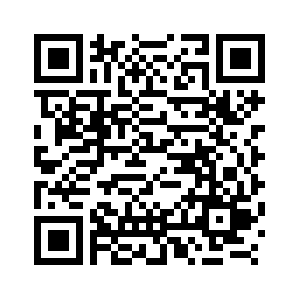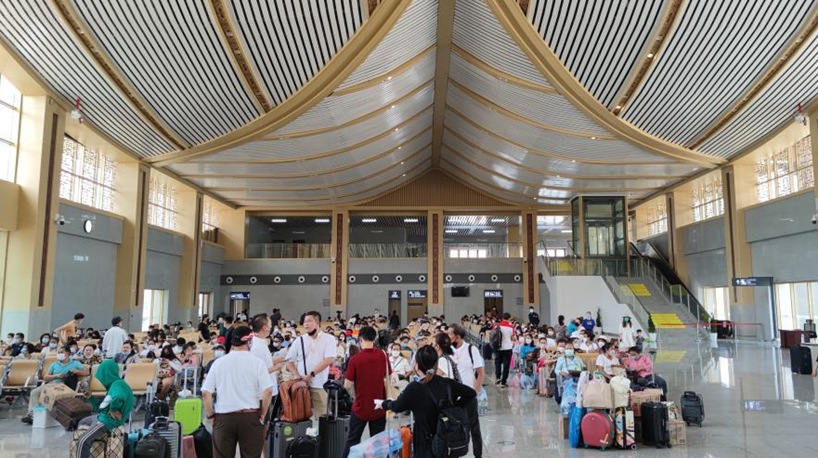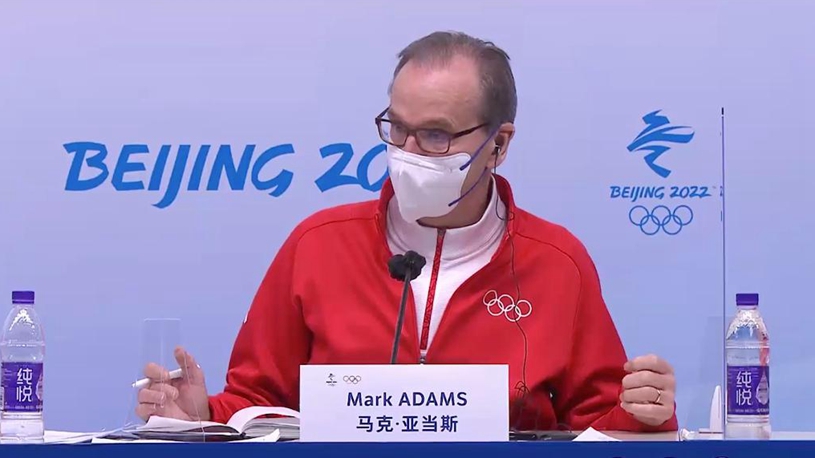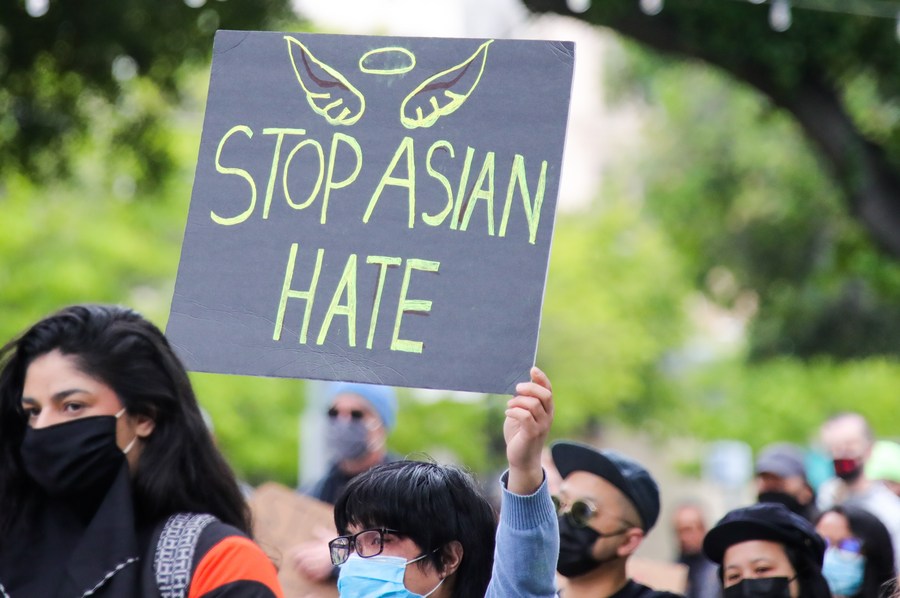
People take part in a Stop Asian Hate rally in San Jose, California, the United States, April 25, 2021. (Photo by Dong Xudong/Xinhua)
All racial minorities were more likely than White adults to experience COVID-19-related discrimination, with Asian and American Indian adults being most likely to experience such discrimination, according to a study.
WASHINGTON, Feb. 24 (Xinhua) -- A new study suggests that racial ethnic minorities in the United States were more likely than White adults to experience COVID-19-related discrimination.
In the study published Wednesday in the American Journal of Public Health, researchers measured the prevalence of COVID-19-related discrimination in all major racial and ethnic groups in the United States.
They also analyzed the impact of other social and demographic factors on COVID-19-related discrimination.
Researchers at the U.S. National Institute on Minority Health and Health Disparities, part of the U.S. National Institutes of Health (NIH), collected information from 5,500 American Indian or Alaska Native, Asian, African American, Hawaiian and Pacific Islander, Latino, white, and multiracial adults.
A total of 22.1 percent of the participants reported experiencing discriminatory behaviors, and 42.7 percent reported that people acted afraid of them, according to the study.
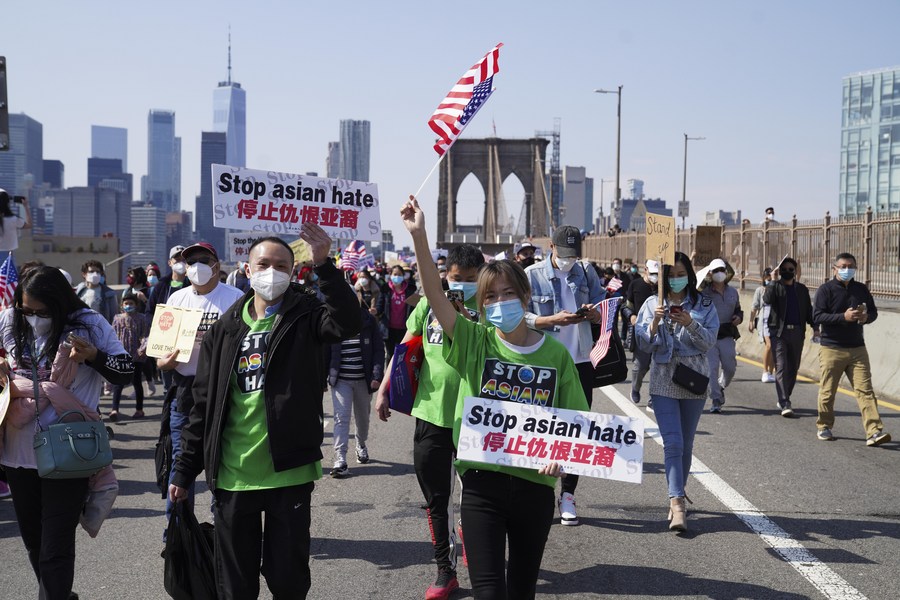
People march to protest against anti-Asian hate crimes on Brooklyn Bridge in New York, the United States, April 4, 2021. (Xinhua/Wang Ying)
All racial minorities were more likely than White adults to experience COVID-19-related discrimination, with Asian and American Indian adults being most likely to experience such discrimination, according to the study.
Limited English proficiency, lower education, lower income, and residing in a big city or the East South Central census division also increased the prevalence of discrimination.
The pandemic has exacerbated preexisting resentment against racial minorities and marginalized communities, said the study.
"The study showcases the need for careful and responsible public health messaging during public health crises to help prevent and address discrimination against groups that have been marginalized," said a release of the NIH on Thursday. ■
